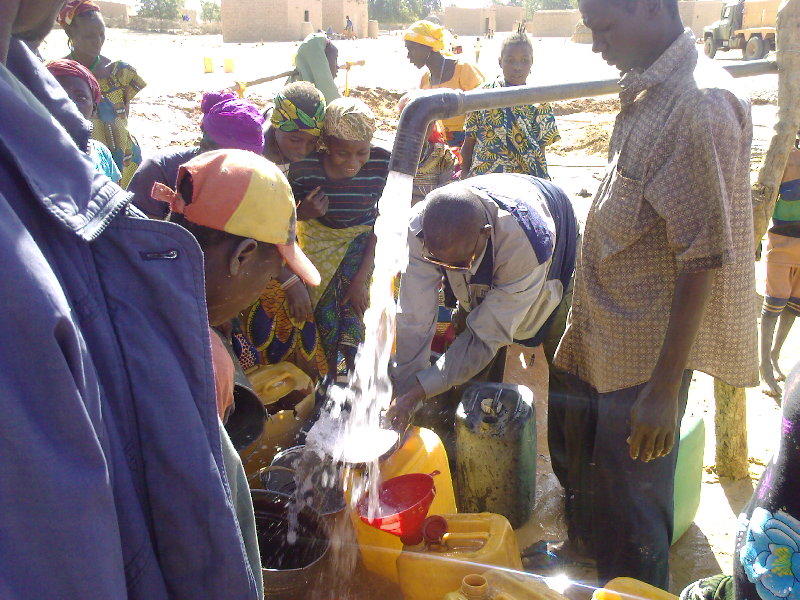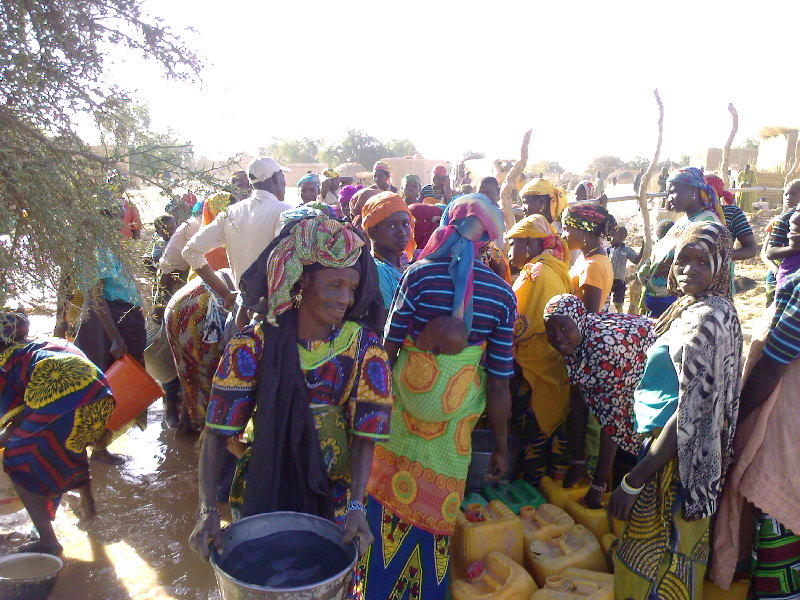
Humanitarian and Development
Place
Kargui Bangou and Dar Es Salam, Niger
Sponsor
Habibou Doudou
Grant(s)
€46,000 to the Selection Committee at 2013/04/09
Project leader
Réseau pour le développement et la promotion des méthodes actives de recherches et de planification participatives au Niger (Réseau Marp-Niger)
Réseau pour le Développement et la Promotion des Méthodes Actives de Recherches et de Planification Participatives au Niger (Network for the Development and Promotion of Active Methods of Participative Research and Planning in Niger) (Réseau Marp-Niger) is a community-benefit nonprofit organization recognized by the Niger Ministry of the Interior in 1997. It develops participative approaches for coherent and sustainable development: leadership of a network of exchanges of experience, dissemination of tools and methods so that the beneficiary population can take over the development projects, quest for funding and strengthening of capacities of the institutions... Réseau Marp-Niger has built up years of experience and constructed an expertise that it offers local players in development through one-time services (training, support, methodological supervision, studies, etc.) and accompaniment missions of varying duration.
A territory bursting with potential
The Dosso and Loga districts form a central strip in the heart of the region of Dosso, in southeastern Niger. The rainfall there has dropped sharply in the last two decades, as everywhere in the Sahel. The groundwater systems of the valleys of Dallols Bosso, Maouri and Foga have nevertheless experienced considerable recharge, often with seepage and surface flows during the winter season. The area has major groundwater resources with three main aquifer systems in contact with each other. Also present are a multitude of permanent and semi-permanent ponds. The agricultural-pastoral territory has vast potential: rain crops predominate (millet, sorghum, fonio, rice, cowpea, groundnut, voandzou, sesame, sorrel, etc.) but irrigated crops are also cultivated near the ponds and the river (rice, sweet potato, potato, onion, tomato, carrot, bell pepper, cabbage, lettuce, zucchini, etc.). Animal husbandry is the second economic activity of the area: cattle, sheep, goats, donkeys, horses and camels, plus many varieties of poultry. The local arts and crafts are quite varied (cast iron, pottery, weaving, sculpture, basketry, etc.) but of lesser importance. Tourist activities are marginal due to the lack of infrastructures and attractive landmarks.
Still undeveloped access to water

The theoretical rate of access to drinking water is 68% in the region: access to drinking water and basic sanitation of the populations in the rural environment is a major concern of the Sahel countries, and of Niger in particular. The Village Water Programs (PHV) therefore represent a priority for the government, which has made large investments with the assistance of its development partners. The National Program for Drinking Water Supply and Sanitation (PNAEPA) calls for the creation of 14 000 modern water points (PEM) and the rehabilitation of another 7 000 by 2018, including 1 540 PEM in the Dosso region.
Permanent drinking water supply systems
Marp-Niger has joined in for the objective by creating two multivillage drinking water supply systems (AEP) at Kargui Bangou and Dar Es Salam with, on average, ten standpipes per village, or 40 equivalent new water points for a population of about 7 000. This will improve the living conditions of the population and livestock, reduce poverty, improve access to drinking water, decrease the prevalence of waterborne diseases, and alleviate the water fetching chores of the women and children.
Drinking water supply for the villages, with the villagers
The implementation strategy is based on the effective involvement and empowerment of the communes and the beneficiary populations at every step of the project. Adequate and operational structures are being set up to guarantee the management and permanence of the infrastructures built.

